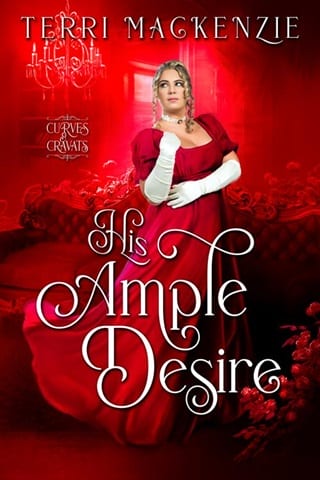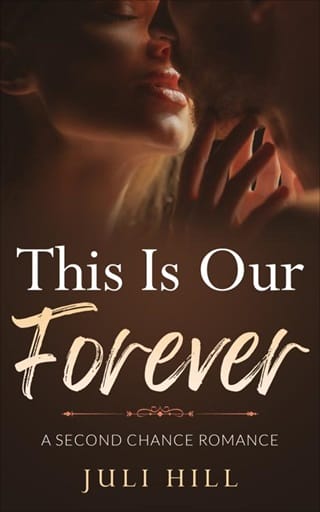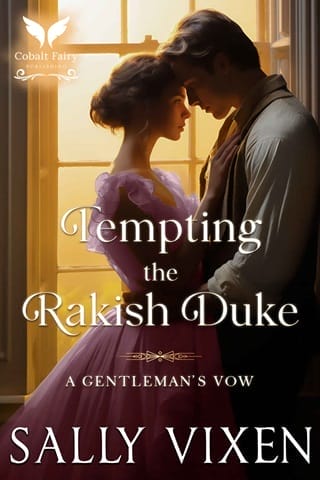Chapter One
May 1815
"How is he?" George asked as he divested himself of his hat and gloves in the front hall. Forbes, the elderly butler his father had insisted on transplanting to Bath, inclined his head.
"The waters have been helping, sir."
George bit back his grimace with difficulty. He had only tasted Bath's famous waters once, and it had been enough to convince him that they could not be of any help. But if his father believed in them, then by all means he would let it continue. "Is he well enough to see me?" he asked.
"I shall inform him of your arrival, sir."
"I'll wait in the library." Steps idle, he strolled into the house's mediocre library. When he had been at Cambridge, he had thrown himself into his studies with unbecoming enthusiasm, and it had taken years for him to improve his reputation. When no one else was around, however, he allowed himself a moment to appreciate the grandeur that was literature. Not merely the fashionable quotes to produce to his fellows, but the sheer wonder that accompanied the collection of ideas. At thirteen, he had used to lie on the floor of his father's study and read Shakespeare, marvelling at the use of language.
Now, however, as he dragged his fingers along the leather spines, his reflection on the noble art was interrupted by far less noble thoughts. In essence, ones of a certain lady whom he had pushed up against shelves similar to this. Her breasts against the books, her head half turned so he could see the hectic flush on her pretty cheeks, her skirts around her wide hips.
Forbes entered the room with a slight bow. "Your father is ready to see you, sir."
Clearing his throat, George nodded and waved for the butler to lead the way. The townhouse was narrow and tall, and they climbed two sets of stairs before finally coming to his father's room. It was by far the nicest in the house, but it was a fool's choice to situate himself upstairs when his health had declined.
Forbes opened the door with a murmured "Mr Comerford here to see you, my lord", and closed it behind George the moment he stepped in.
The room was darkened, burnt sage hanging in the air, and the curtains pulled close. In the armchair by the fire, sitting bolt upright despite his shaking hands, was his father.
George's first instinct was to pity the man. Benjamin Comerford, Viscount Worthington, was a proud man, and had in his prime been known as an excellent hunter and bruising rider. Now he was a gaunt shadow of his former self, burning sage to keep the spirits away, though when healthy he would have derided the existence of such things.
Then his father fastened him with an icy glare that time had not diluted, and his pity melted into something hotter like anger. Resentment.
Hardly surprising: their relationship over the years had been strained at best.
"You should try opening a window," he remarked as he strolled forwards, taking the seat opposite his father. "I find fresh air does wonders when one is feeling under the weather."
His father's bony hands tightened around his handkerchief, and George noticed that the white material was stained red.
"How goes your search?" the Viscount asked, voice scratchy and weak. "Have you found a suitable wife yet?"
"How delightful that we are not even to exchange pleasantries before getting into it."
"I do not have time for pleasantries," his father said. Once, when he was a boy, George recalled his father being almost good-tempered.
Ah, heady days. Long in the past now.
"I have not yet made my choice," George said, crossing his legs. "Be assured when I do, I will let you know."
"You're confident of being received well?"
"I expect so. Unless she's in love with another."
"Bah," his father said. "Love."
"Quite," George drawled. If he could have contrived to marry for love, he would have done, but he thought it was unlikely he would be so lucky. In recent years, the only lady to have captured his attention for more than a few weeks had made it plain she had no interest in marriage.
"You've been dragging your feet too long. Pick a girl and have done with it." His father hacked and coughed. "I don't have time for your dilly-dallying."
Keeping his irritation from his face, George removed his snuffbox from his coat pocket and inhaled a pinch. It had the rather pleasing consequence of inducing his father to scowl, so he did so again. "You know I owe it to the family name to choose the right lady," he said lazily.
His father's eyes narrowed, but as this was a sentiment he had himself said several months ago, he could find nothing to object to.
"But I hardly see the rush," he continued. "I'm thirty, hardly an old man yet. Give me time, Father."
"Time for what? Am I to pass from this world having not seen my son married?" He tapped his stick impatiently against the carpet. "I think not. I will have Forbes write you a list of families I consider eligible. Pick one. And soon."
"I take it you have nothing else to say to me?"
"Not until you find a wife."
"Charmed." He gave a mocking bow. "I shall see myself out."
"I mean it, George. My patience is running thin."
"This was, as always, a productive meeting, Father." George reached the door and had almost escaped before his father sighed.
"If you would not do it to oblige me, do it in memory of your mother. She would have wanted this."
What a vilely low blow. George shut the door with a slam and leaned against it, dragging a hand down his face. While his relationship with his father was strained, he had adored his mother until the day she died, several years ago.
Well, he'd known this day was coming, whether he liked it or not.
"Good day, Forbes," he said as he descended the stairs again. "I'll see myself out. I believe you shall be instructed to shortly send me a list of eligible brides."
The butler inclined his head regally. "Very good, sir."
If only, George thought wryly, it was.
#
Caroline read the letter in her hand, a crease forming between her brows. After a few moments, she reached up and pressed her fingers against the groove, smoothing it out again. Her looks were her primary currency, and she couldn't afford for something as trifling as a little destitution to hurry time along. This was, after all, nothing particularly new. Ever since her husband's untimely death, she had been accustomed to living life somewhat . . . precariously.
And now this additional call on her purse.
We received no answer to our last missive, so forgive my impertinence in writing again. You are behind on your payments for Jacqueline, and there is the matter of her dowry. You understand that we will be presenting her next year, and if she is to take, she must have a sizeable dowry.
We await your response .
There was no signature. Mrs Smith rarely left her name at the bottom of her letters; she had consented to accept Jacqueline as her own, to give her a home and a roof over her head and clothes on her back—for a price, always for a price—but she did not approve of Caroline.
Then again, few did approve of a girl who had lain with a man outside of marriage, conceived his bastard, and given the child away.
Her father had been the one to negotiate the arrangement, and when he had died almost ten years ago now, Caroline had taken over the monthly payments. After her husband's death—he had left his fortune elsewhere—it had been a struggle, but she had contrived it.
The matter of the dowry, however.
Caroline sucked at her teeth.
Usually, when she worried about going short, she would dip her pen into ink and write a cajoling letter to the man—or men—paying for the delights of her company, requesting a gift.
Usually, these gentlemen obliged and after an appropriate amount of time, she could sell his gift and send the money into the country.
Usually , she had a gentleman on which to call.
That made today's letter particularly inconvenient.
"My lady," her butler said. "The carriage has arrived."
She stuffed the letter back in her reticule and forced a smile. Despite her somewhat dubious reputation, her birth and marriage were good enough that most hosts still invited her. Of course, Lady Jersey was never going to permit her an Almack's voucher, but there were worse things: she was not a mere girl in her first Season, after all. And Almack's had always struck her as singularly dull . One could not so much as sneak a kiss.
She might use her lovers to fund her obligations, but she did enjoy her escapades, for the most part. The dowagers lining the walls tonight would be shocked at the idea that Caroline, for all her veneer of respectability, enjoyed being a man's mistress.
Ah well, if she was selling her soul, she had best make the most of it.
The carriage was dark, but the journey was short, and when she finally pulled up outside Lady Peterborough's grand townhouse, her curls were fluffed, her bosom was plumped and she was at full advantage in a daring red gown and white gloves.
A small, infinitely girlish part of her marvelled at the lights and beauty, and the simple gallantry of the footmen as they took her coat. Despite knowing better, that part of her hadn't died when she moved to the metropolis. There was something delightful about beauty; she should know, as a connoisseur.
Lady Peterborough, smiling and vaguely polite, greeted her with a press of her hands before turning her attention to the next guests. Caroline moved into the ballroom, the heat stifling and a buzz of expectation in the air. So long as she did not lose her nerve, as she had done every time she'd attended a ball these past five weeks, she would secure her future.
"Caroline," Mr Isaac Barnaby called out to her, attracting her attention with a flick of his fingers. "Come, have some wine." He smiled as he handed her the glass, his fingers brushing hers. "I haven't seen you in a while, my dear. I've missed you."
Ordinarily, she would say she missed him too—and perhaps she would have meant it—if she had not been distracted by the recollection of a certain gentleman. One with the mouth of a poet and the hands of a sinner.
Annoyed with herself, she sighed inwardly. Anyone would think she was a naive girl in the first flush of youth enjoying her first seduction—and inevitable heartbreak. She would not let that happen again.
"Darling," she said, accepting the wine. "You can hardly say it now you're married."
"Convenience only."
"Nevertheless." She took a sip. "You know my rules."
"Ah, you're a cruel mistress. Not even a kiss for old time's sake?"
"Kiss your wife, Barnaby—you won't succeed with me." Raising her glass, she moved past him and cast her gaze about the room. There were almost four hundred people in attendance; it was deeply unlikely she would see George Comerford, and she could easily keep her distance from him. There was no reason for her to think about the sight of his curly head between her legs, or the gruff note in his voice as he whispered praise against the skin of her thigh.
No reason at all.
Goodness, it was warm in here. She snapped out her fan and fanned her chest. No more thoughts of George. Tonight, she would find herself another lover and all would be well.
One thing was for certain: she could not afford to leave it much longer.
 Fullepub
Fullepub 



